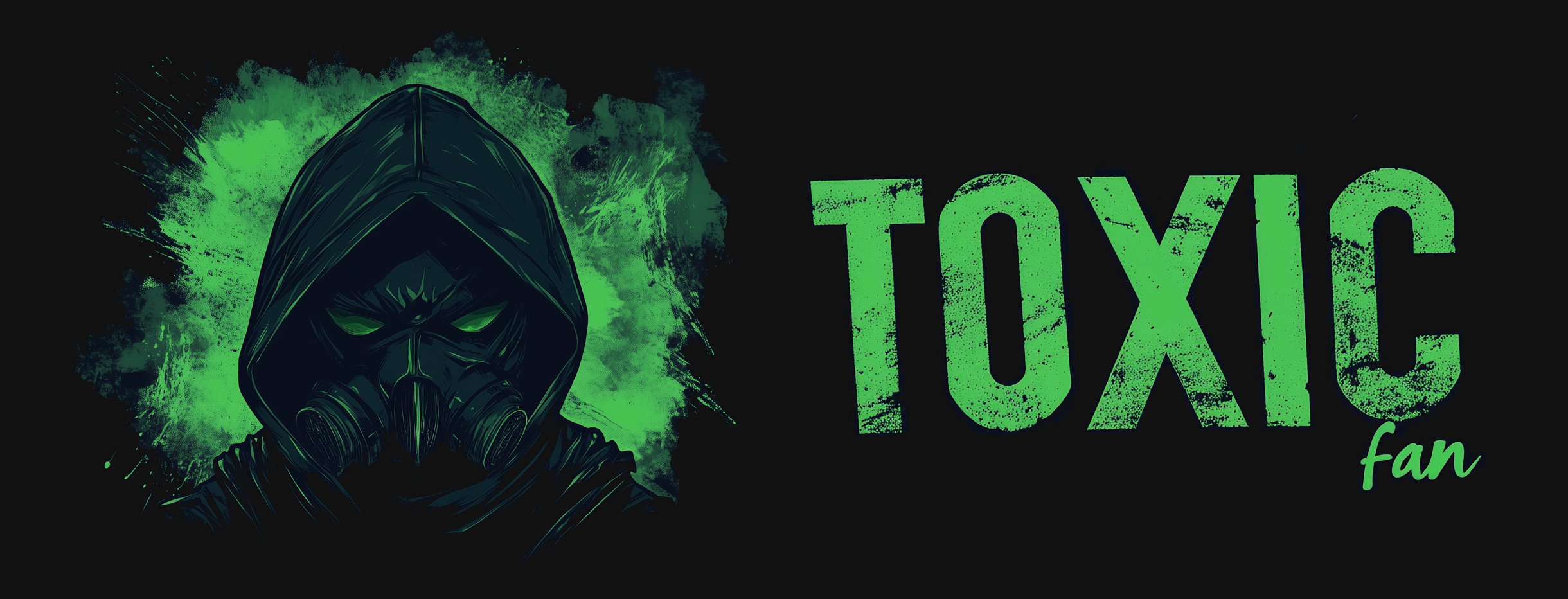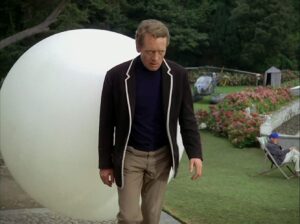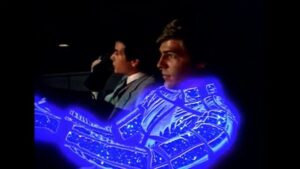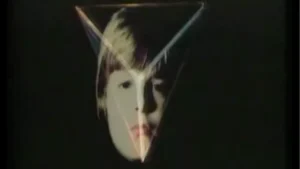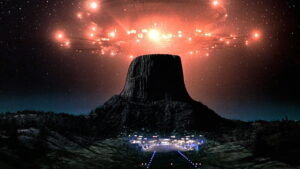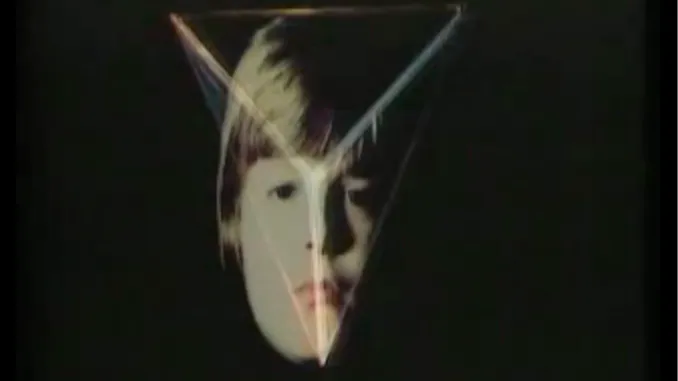
Chocky. Photo Credit: Thames Television
“Chocky” is the kind of TV show that makes you wonder if the ’80s were just one long, weird fever dream. Picture this: it’s 1984, Margaret Thatcher is in power, shoulder pads are the height of fashion, and British television decides to air a show about a boy with an alien consciousness living in his head. No, this isn’t the result of a particularly wild night at the BBC writers’ room – this is “Chocky,” the sci-fi series that dared to ask, “What if E.T. was less about phone calls home and more about possess…I mean, enhancing a child’s mind?”
Based on John Wyndham’s 1968 novel, “Chocky” tells the story of Matthew Gore, a 12-year-old boy who suddenly starts talking to himself. Now, in most families, this might prompt a concerned chat or a quick call to the nearest child psychologist. But in the world of “Chocky,” it’s clearly a sign that your kid has been chosen as the vessel for an alien consciousness. Obviously.
It’s only when Matthew starts exhibiting knowledge far beyond his years and occasionally speaking in a voice that sounds suspiciously like a middle-aged BBC narrator that they begin to suspect something might be amiss.
Matthew’s parents, David and Mary, initially dismiss their son’s new “imaginary friend” as a phase. You know, that totally normal phase where your child starts spouting advanced mathematical concepts and questioning the inefficiencies of human civilization. Just your typical pre-teen stuff, really. It’s only when Matthew starts exhibiting knowledge far beyond his years and occasionally speaking in a voice that sounds suspiciously like a middle-aged BBC narrator that they begin to suspect something might be amiss.
Enter Alan Dove, a journalist who becomes interested in Matthew’s case. Dove is the kind of character who, in any American sci-fi show, would be wearing a tinfoil hat and ranting about government conspiracies. But this is British television, so instead, he’s a mild-mannered chap in a tweed jacket who politely suggests that maybe, just maybe, young Matthew might be communicating with an extraterrestrial being.
As the series progresses, we learn that Chocky isn’t just any old alien consciousness. No, Chocky is on a mission to prepare humanity for the challenges of the future, like dwindling energy resources and climate change. Because nothing says “save the planet” like hitching a ride in a pre-teen’s brain, right? It’s like “An Inconvenient Truth,” but with more telepathy and fewer PowerPoint presentations.
The beauty of “Chocky” lies in its very British approach to the alien encounter narrative. There are no explosions, no White House invasions, not even a single cow abduction.
The beauty of “Chocky” lies in its very British approach to the alien encounter narrative. There are no explosions, no White House invasions, not even a single cow abduction. Instead, we get hushed conversations over tea, concerned looks across the dinner table, and the occasional psychic outburst during a maths lesson. It’s like “Close Encounters of the Third Kind” if it took place entirely in a semi-detached house in the Home Counties.
What sets “Chocky” apart from other sci-fi shows of its time is its focus on the psychological impact of the alien presence. We’re not just watching Matthew grapple with his unwanted telepathic tenant; we’re seeing a family trying to maintain normalcy in the face of the extraordinary. It’s like a domestic drama, but with added quantum physics.
The show’s special effects, if you can call them that, are charmingly lo-fi. Chocky’s presence is often represented by a wavy, blurry effect on the screen, as if someone had sneezed on the camera lens and decided it looked alien enough. When Chocky does manifest visually, it’s as a glowing, androgynous figure that looks like it was created by someone who had heard of computer graphics but had never actually seen any.
“Chocky” ran for three series – “Chocky,” “Chocky’s Children,” and “Chocky’s Challenge” – each more improbably named than the last. By the final series, the show had evolved from a quiet family drama with sci-fi elements to a full-blown “kids with psychic powers save the world” extravaganza. It was like “The Tomorrow People,” but with more angst and fewer fashion crimes.
Despite its short run, “Chocky” left an indelible mark on British sci-fi television. It proved that you didn’t need big budgets or flashy effects to tell a compelling story about first contact. All you needed was a confused kid, some concerned parents, and an alien consciousness with a penchant for advanced physics and environmental awareness.
In many ways, “Chocky” was ahead of its time. Its themes of environmental concern and the potential benefits (and dangers) of advanced alien knowledge feel remarkably prescient in our current era of climate crisis and rapid technological advancement. Of course, if an advanced alien species really wanted to help us today, they’d probably be better off possessing a social media influencer rather than a 12-year-old boy. Think of the reach!
Looking back, “Chocky” stands as a testament to the unique blend of domesticity and high-concept sci-fi that British television does so well. It’s the kind of show that makes you look at your kid’s imaginary friend with newfound suspicion. Is little Timmy talking to his teddy bear, or is he communing with an advanced alien race? And more importantly, can we get the alien to help with his homework?
In the end, “Chocky” remains a cult classic, beloved by those who remember its original run and discovered with bemused fascination by new generations. It’s a reminder of a time when science fiction on TV could be quiet, thoughtful, and more than a little weird. So here’s to you, “Chocky” – may your legacy live on, inspiring kids everywhere to question reality, ponder the mysteries of the universe, and occasionally freak out their parents with sudden bursts of advanced trigonometry.
